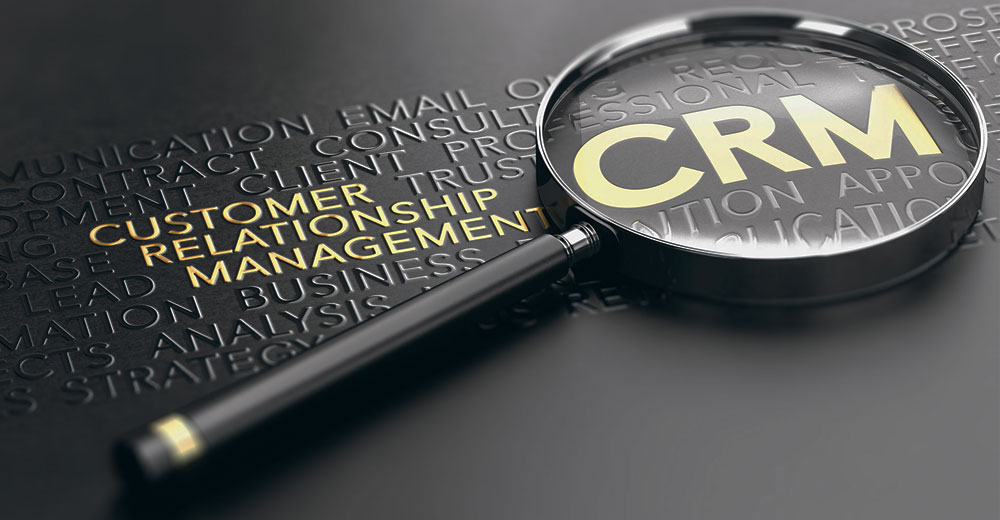This might be a big year for CRM. I say might because I am not clairvoyant, and humility is on the resolutions list.
As I see it, CRM has gone through five 5-year cycles. All numbers are approximate, but they go like this:
- Client-server from the mid-1990s to 2000 when a small group of companies hit the street with a new idea for front office software.
- By 2000 there were hosted products which became software as a service and eventually cloud computing. SaaS was hugely popular because it tamed the economics of buying and implementing a big system. We’d just done ERP for the change of millenniums and many people and organizations were burnt out from it. SaaS was at least cost-effective in comparison. But that era was largely over by the middle of the decade because most of the dotcoms crashed and burned or were bought up.
- From the mid-2000’s to the end of the decade we were enthralled by the wisdom of crowds and social networking. We couldn’t get enough social, social, social. It was a noun and a verb, and it cured cancer — or so it seemed. But by the middle of the teens Facebook and its kin gave social media a bad name, Marc Benioff declared it akin to cigarette smoking, and social has been in the doghouse ever since. Regulation might be around the corner.
- The last five years have focused on a combination of advanced analytics, machine learning, putting the customer in the middle of things, and the development platform as a way to exactly customize CRM to your needs.
At this point, that trend feels as old as SaaS, and I think we’re going to embark on a new cycle that will take roughly five years to fulfill. The big question now is: “What will it be?”
Glad you asked.
From all of the research I did in 2020 — and I did a lot because there wasn’t much else to do safely — I concluded that despite all of the wonderful new technology on offer, that many, many companies were getting along with ancient CRM by my standards. Too many old modules don’t talk to each other, it takes Herculean effort to share data.
Many of the people I surveyed said they’d rather fight with their significant other, go to a dental appointment, or even clean the bathroom than deal with CRM. Ouch!
The Next CRM
As I like to say, old CRM works exactly as it was designed to, but humans don’t work that way anymore. For starters, we don’t even go into the office that much.
So, we have a situation where people are propping up CRM in order to do their jobs and that’s placing a big burden on them. In addition to trying to make their numbers, they’re working up to eight screens at a time to market, configure, price, and quote, pull deals together, get approvals and get back to the customer before someone else does — and that’s not always successful.
That’s the bad news. The good news is that there are fixes for all that, but it means an upgrade, which comes with its own set of troubles, sort of like running a marathon while getting a heart transplant.
The next CRM will need to incorporate all that’s gone before it, plus offer a platform that generates code every time we modify a process. But that’s not a problem. It already exists and companies like Salesforce, Oracle, and Zoho have the goods.
If I’m honest with myself, another resolution I have to say is that technology isn’t going to be the issue with CRM this time. We all watched with amazement last year when Salesforce, Zoho, and Oracle began offering apps to support some of the unique requirements of the pandemic in record time, so we know the platforms are up to snuff.
Culture of Continuous Improvement
What’s needed now, though, is something to take the sting out of change, something to get those unwilling users to come back from the dentist or the DMV. We’ve never had really robust CRM training because we always pretended that it was so intuitive that anybody could pick it up in no time. If that idea was ever true, it died in the first (W.) Bush administration.
Today, CRM is a culture change agent, a philosophy of business, and a technology set — and while you might be able to figure out how to navigate a screen, the other stuff will take some concerted effort.
Digital disruption is another CRM epoch, though it doesn’t end, it’s a zombie or evergreen depending on your world view and we’ve taken it to mean a CRM shopping spree instead of an opportunity to ask and answer simple questions like: “What’s working well in my business and what’s not?” and “Is there software to make it better?”
So, my wet finger in the breeze for CRM in 2021 is forecasting that we need a whole lot of training and discussion of what business is about. On that second point, we have the Business Roundtable strongly suggesting that we’re moving from an era of shareholder capitalism to one of stakeholder capitalism. If that’s true, businesses are going to be looking at employees, partners, customers, and their local communities in different ways. In fact, that’s already started. Additional research I’ve conducted shows most, though not all, companies get it and are searching for solutions. The solutions begin with culture.
We need to instill the idea of a culture of continuous improvement in our businesses, which will help us avoid ever getting to the same point where employees would rather clean the bathroom than work with CRM. All of this says we need to have a serious talk with ourselves about the future of business and our companies’ places in what lies ahead. It starts with a more aware and attuned workforce, and that’s why I’m thinking this year begins an effort at understanding.





























































